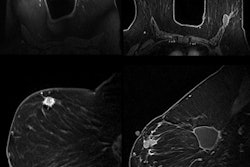A new study published online in JAMA Surgery has found racial disparities in the use of sentinel lymph-node biopsy (SLNB) to stage early breast cancer.
Researchers found that sentinel lymph-node biopsy rates increased in both black and white women from 2002 to 2007, but the rates remained lower in black women.
The disparity contributed to differences in the risk for lymphedema, or arm swelling common after breast cancer treatment because of damage to the lymphatic system, according to the group from MD Anderson Cancer Center (JAMA Surgery, June 18, 2014).
Dr. Dalliah Black and colleagues identified cases of nonmetastatic, node-negative breast cancer in women 66 years of age or older from 2002 through 2007. Of the 31,274 women identified, 1,767 (5.6%) were black, 27,856 (89.1%) were white, and 1,651 (5.3%) were of other or unknown race.
Sentinel lymph-node biopsy was performed in 73.7% of white patients and 62.4% of black patients. Although use of the technique increased year by year for both black and white patients, blacks were 12% less likely than whites throughout the study period to undergo SLNB, the researchers found. The five-year cumulative lymphedema risk was 8.2% in white women and 12.3% in black women.
Socioeconomic and geographic factors -- such as having insurance coverage through Medicaid, living in areas with lower education or income levels, and living in areas with fewer surgeons -- were associated with lower SLNB use, according to the researchers.
"These findings emphasize that not all newly developed techniques in breast cancer care are made available in a timely fashion to all eligible patients," Black and colleagues wrote.



















